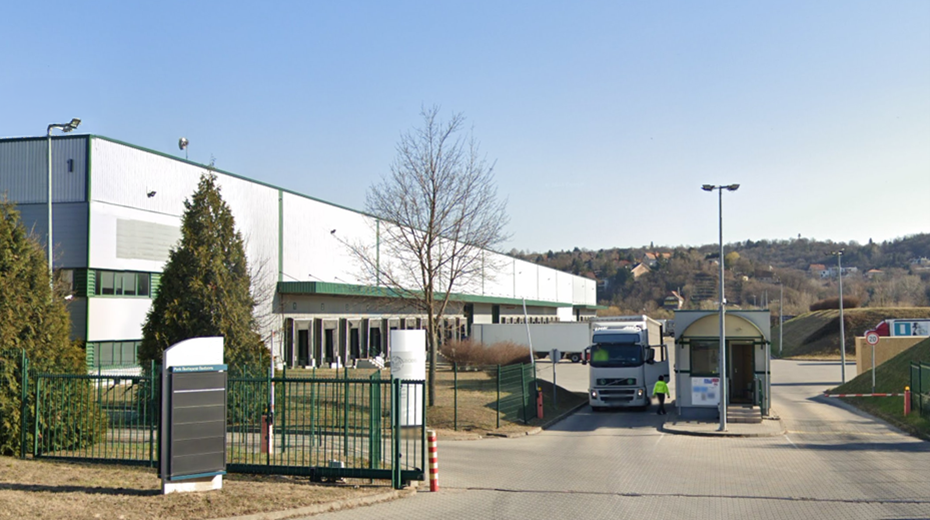According to the latest report “Industrial and Warehouse Market in Poland”, during the third quarter of 2025, new supply slowed slightly in Poland’s warehouse and industrial market, while leasing activity also eased. New completions hit their lowest quarterly volume since late 2020, with take-up down nearly 14 percent on the previous quarter. However, leasing activity for the first three quarters of 2025 surpassed 4.54 million sqm, up nearly 20 percent year-on-year.
At the end of the third quarter of 2025, Poland’s total warehouse and industrial stock reached nearly 36.45 million sqm, up 7.3 percent year-on-year. Almost 81 percent of stock is located in six main warehouse markets (Mazovia, Upper Silesia, Lower Silesia, Łódzkie, Greater Poland and Pomerania).
“Just under 1.55 million sqm was delivered year-to-date, down 26 percent compared with the first nine months of 2024. The most active development regions were Lower Silesia, Upper Silesia, Mazovia and Łódzkie. In the third quarter alone, 398,400 sqm was added, down 15 percent quarter-on-quarter and more than 12 percent year-on-year, marking the lowest quarterly supply since the fourth quarter of 2020. According to Newmark Polska experts, Poland’s warehouse and industrial market is expected to expand by around 2 million sqm in 2025 as a whole,” says Jakub Kurek, Head of Industrial and Warehouse, Newmark Polska.
Space under construction
Nearly 1.56 million sqm of warehouse and industrial space was under construction at the end of September 2025, up 6.1 percent from the second quarter but almost 20 percent below the same point last year. This represents the strongest development pipeline since early 2025, yet still nearly 70 percent below the peak of approximately 4.75 million sqm recorded in the first quarter of 2022.
“As in previous quarters, the highest concentration of construction activity was in Poland’s six largest markets, which accounted for nearly 77 percent of projects underway, with more than one-third in Mazovia,” adds Jakub Kurek.
Tenant activity in the warehouse and industrial market in Poland
Occupier activity eased slightly during the third quarter of 2025 following a rebound in the warehouse and industrial leasing market in the second quarter, which saw more than 1.84 million sqm of transactions completed. Total take-up in the third quarter topped 1.59 million sqm, down nearly 14 percent quarter-on-quarter but more than 42 percent higher year-on-year.
“Transaction volume for January-September 2025 surpassed 4.54 million sqm, representing a 19.6 percent increase compared with the same period last year. Nearly 70 percent of warehouse take-up was generated by Mazovia, Lower Silesia, Upper Silesia and Łódzkie. In the first three quarters of 2025, leasing activity was dominated by renewals, which accounted for 51.7 percent of total take-up. New leases, including BTS projects, followed at 41.1 percent, with expansions making up 7.2 percent. Additionally, a total of 195,300 sqm was transacted under short-term leases of up to one year,” says Jakub Kurek of Newmark Polska.
Year-to-date leasing activity peaked in the second quarter, which also saw the largest transactions of 2025: two sale-and-leaseback deals for production facilities leased by Eko-Okna in Wodzisław Śląski (131,200 sqm) and Kędzierzyn-Koźle (131,100 sqm). The third quarter recorded the third-largest transaction, with Agata S.A. renegotiating and expanding its lease to over 128,000 sqm of warehouse space at Mapletree Piotrków II.
Warehouses to lease
In the third quarter of 2025, Poland’s overall vacancy rate remained flat quarter-on-quarter at 8.2 percent but edged up by 0.2 pp year-on-year. Vacant stock at the end of September totalled more than 2.98 million sqm, the second highest in the history of the Polish market. By contrast, projects in the pipeline offered just over 705,750 sqm of warehouse and industrial space for lease.
The highest vacancy rates were in Lubuskie and Świętokrzyskie (17.2 percent each), Lubelskie (13.2 percent) and Lower Silesia (10.7 percent), while the lowest were recorded in Podlaskie and Opolskie (zero vacancies) and in Western Pomerania (2.1 percent).
Rents
The period between June and the end of September 2025 marked another consecutive quarter in which prime warehouse and industrial rents remained relatively stable across Poland’s key markets.
“In regions with high vacancy rates, tenants were able to secure more favourable terms, including lower rents and more generous incentive packages. Meanwhile, landlords of modern, sustainable and energy-efficient facilities in prime locations were less willing to make concessions, resulting in slightly higher occupancy costs. At the end of the third quarter of 2025, the highest rents were recorded in Warsaw (zone 1), Pomerania, Upper Silesia and Lesser Poland,” comments Agnieszka Giermakowska, Research & Advisory Director, ESG Lead, Newmark Polska.







